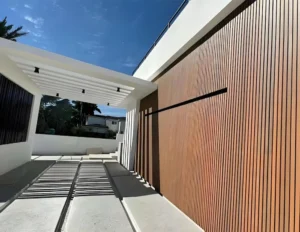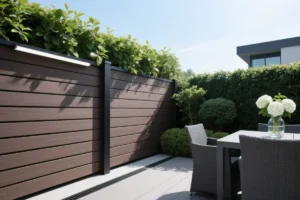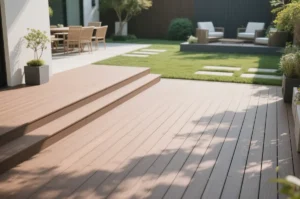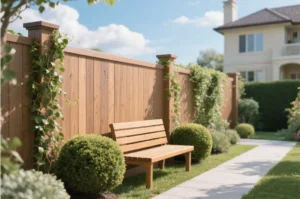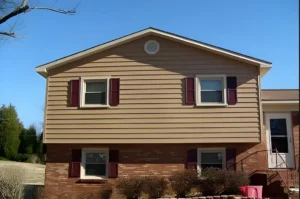Looking to upgrade your outdoor space and care about the planet? Eco-friendly WPC fencing is becoming the top choice for homeowners and builders who want both beauty and sustainability. Made from recycled materials and built to last, this type of fence checks all the boxes for modern living. Let’s dive into why WPC fencing is such a smart, green solution.
What Makes WPC Fencing Eco-Friendly?
Recycled and Renewable Materials
WPC stands for Wood-Plastic Composite. It’s made by combining recycled plastic—like HDPE or PP—with wood fibers. That means fewer trees are cut down, and more plastic waste gets reused instead of ending up in landfills.
Turning Waste Into Value
Think about all the plastic bottles, containers, and packaging we throw away. Composite fencing gives that plastic a second life. It’s a great way to fight pollution and reduce our impact on the planet.

Low-Impact Manufacturing
Less Energy, Lower Emissions
Unlike traditional wood or plastic products, WPC fencing doesn’t require high heat or intense chemical treatments. The production process uses less energy, which means a smaller carbon footprint from start to finish.
Clean and Responsible Factories
Professional manufacturers follow eco-friendly practices. They treat waste and emissions before release, so there’s little harm to the air, soil, or water. You can feel good knowing your fence was made the right way.
Safe to Use and Kind to the Environment
No Harsh Chemicals Needed
Traditional wood fences need a lot of help to last—think sealants, stains, and chemical preservatives. WPC fencing is different. It naturally resists rot, mold, pests, and moisture, without needing harmful treatments.
Long-Lasting = Less Waste
A good WPC fence can last 20 to 30 years or more. That means you won’t be tearing it down and replacing it every few seasons. Fewer replacements mean less construction waste and less stress on the planet.
Easy Maintenance, Fewer Chemicals
Keeping your fence looking great is simple. No painting, no sealing, no pressure washing with chemicals—just a rinse with water now and then. That’s better for the environment and easier on your wallet too.
What Happens When WPC Fencing Reaches the End of Its Life?
Fully Recyclable
Even after years of use, eco-friendly WPC fencing doesn’t have to go to waste. It can be collected and recycled into new fencing or decking products. It’s a great example of circular design in action.
Can Be Used for Energy
If recycling isn’t available, WPC materials can be processed in energy-recovery plants. That means they’re burned in a clean, controlled way to generate heat or electricity—much better than sitting in a landfill.
How WPC Fencing Compares to Other Materials
WPC vs. Traditional Wood
Wood might look natural, but it comes with a cost—trees are cut, chemicals are added, and repairs are constant. In contrast, WPC fence gives you that wood-like look without harming forests or needing all the maintenance.
WPC fences vs. PVC fences
PVC fencing is plastic-only and made from virgin petroleum-based materials. It’s durable, yes—but not very green. WPC fencing uses recycled plastic, looks more natural, and avoids the environmental downsides of pure plastic fences.
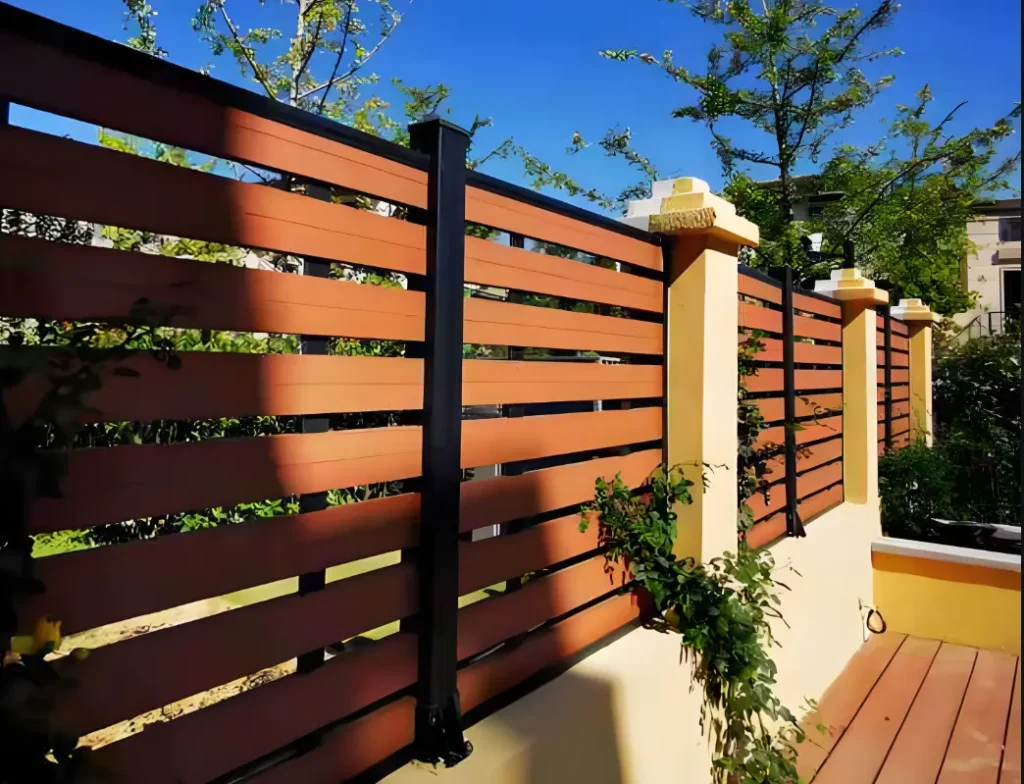
Key Benefits of Eco-Friendly WPC Fencing
Let’s recap why more people are switching to this sustainable option:
- Saves natural resources by using recycled plastic and reclaimed wood
- Reduces pollution by turning waste into valuable products
- Low-impact production with less energy and fewer emissions
- Chemical-free maintenance, safe for soil, pets, and kids
- Durable and long-lasting, which means fewer replacements and less waste
- 100% recyclable or energy-recoverable after use
- Stylish and modern, matching any outdoor design with ease
From front yards to commercial projects, eco-friendly WPC fencing is a smart way to combine function, fashion, and environmental responsibility.
Why It’s the Perfect Choice for Green Living
Making eco-conscious choices doesn’t mean you have to give up on quality or aesthetics. WPC fencing delivers the best of both worlds. It looks great, lasts long, and helps reduce your environmental footprint—what’s not to love?
So whether you’re building a private backyard, fencing off a pool area, or securing a property line, consider going with eco-friendly WPC fencing. It’s an investment in both your home and the planet.


